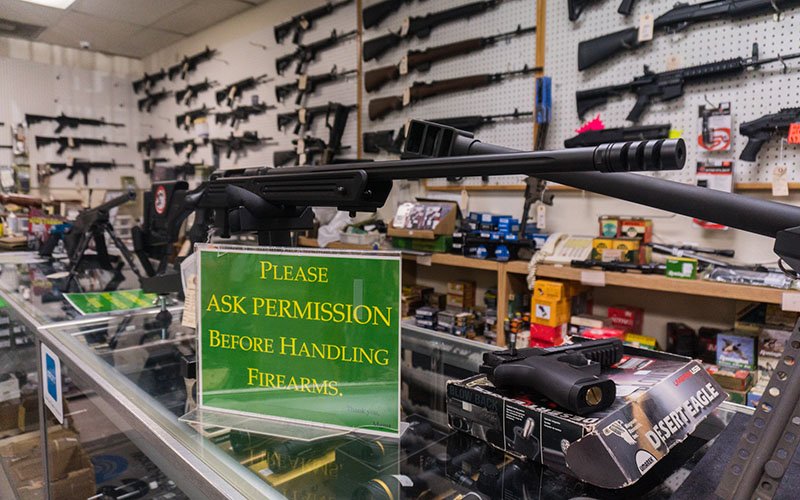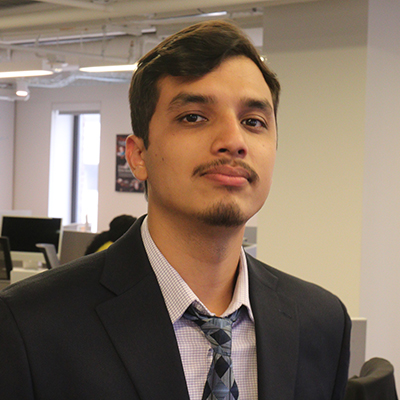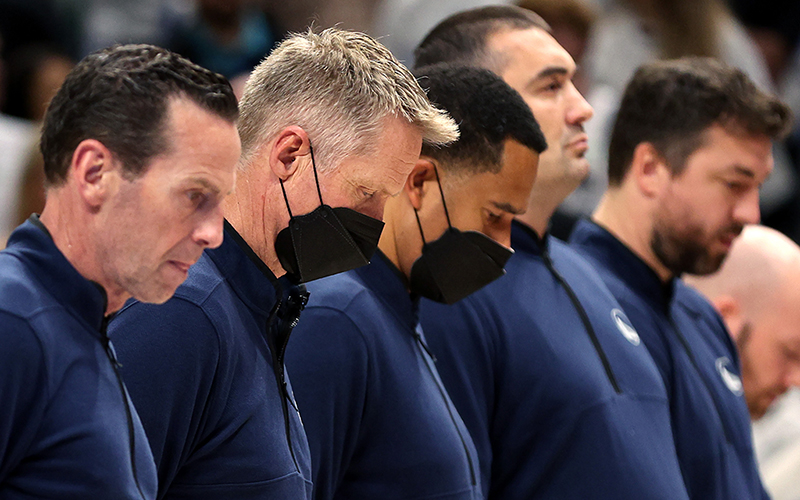
Firearms on display at Legendary Guns store in Phoenix in 2018, when there were 377,838 firearm background checks in Arizona. By 2020, that number had jumped to 665,458 and it has since remained well above previous years. Now, analysts say there could be another surge in buying in response to the recent spate of mass shootings in the U.S. (File photo by Daria Kadovik/Cronkite News)
WASHINGTON – Gun sales in Arizona have surged in recent years and experts say they could jump again, sparked by reports of multiple mass shootings around the U.S.
FBI data shows that there were more than 4.3 million background checks on gun purchases in the state over the last decade, and one-third of those have come in just the last two years. The 61,899 firearms background checks conducted last month were the most for any April since at least 1999, according to the FBI’s National Instant Criminal Background Check System, or NICS.
While gun-rights and gun-control advocates agree on virtually nothing, they believe that recent mass shootings in Buffalo, New York, and Uvalde, Texas, have the potential to boost sales again.
“It’s driven by insecurity and chaos and uncertainty, by the fear of gun restrictions or gun bans being passed,” said Jennifer Carlson, a sociologist at the University of Arizona who is currently working on a book about the politics of guns. “Generally, yes, we do see spikes [on gun sales] after mass shootings.”
An official with the Arizona Citizens Defense League agreed, but for a different reason.
“The increase in firearm sales are a natural consequence of people taking responsibility for their own security,” said Charles Heller, co-founder of the group.
Their comments come as the nation is reeling from two high-profile mass shootings in just the past two weeks, the latest in 214 mass shooting incidents in the U.S. so far this year that have resulted in 242 deaths and 926 injuries, according to the Gun Violence Archive. It reported three mass shootings so far this year in Arizona that killed three and injured 16.
The gun debate intensified after a gunman who reportedly touted white supremacist theories walked into a supermarket in Buffalo and opened fire on Black shoppers on May 14. Nine shopper and a security guard, ranging in age from 32 to 86, were killed in that attack.
Ten days later, an 18-year-old gunman, who officials said bought two AR-15-style rifles on his birthday, entered Robb Elementary School in Uvalde where he killed 19 students and two teachers Tuesday before he was shot and killed by police.
The recent shootings led to the usual offerings of “thoughts and prayers” and brought a new round of now-familiar debates.
The Republican Party of Arizona tweeted Tuesday that America needs to “join together … and overcome these senseless tragedies,” but said the nation has not “even scratched the surface of mental health in America.” The same day, Arizona House Democrats accused GOP leaders in the Legislature of “pure cowardice” for refusing to hold hearings on 13 gun violence prevention bills that have been stalled in the Legislature, and urged leadership to “finally show courage” on the measures.
But that could be a tough sell in Arizona, a state that “respects” Americans’ gun rights, according to the National Rifle Association. The gun-control group Giffords, meanwhile, gives Arizona an F on its annual gun law scorecard and ranks it 42nd among states for gun safety.
“If more guns meant that we were safer, we would be the safest country in the world,” said Missy Paschke-Wood, a volunteer leader with Moms Demand Action in Arizona. “And, we’re not.”
The Tucson resident has two girls, ages 10 and 6, and said the recent shootings have made her feel less safe and secure as a parent.
“Just like tens of millions of parents every single day, and certainly on Wednesday morning, we have to hug our children,” she said. “We have to have faith that today won’t be the day that we get a terrible phone call, that we’re not being swabbed for our DNA.”
But Heller said that gun-control measures that advocates like Paschke-Wood want will only backfire on them.
“Every time some government blowhard begins to bloviate about how the weapon is the problem, people naturally go out and buy more of it,” Heller said. “It’s what we call a perverse effect. It stimulates the exact thing they claim to want not to happen.
Carlson, the UArizona professor, said the issue is much larger than laws and policies. But she is not optimistic about what can be achieved in our current “broken political system.”
“We need to dwell a little bit in that despair,” she said. “It’s to recognize that dealing with this means dealing with not just firearms, themselves, but the deeper issues of democracy that are falling apart in this country.”

